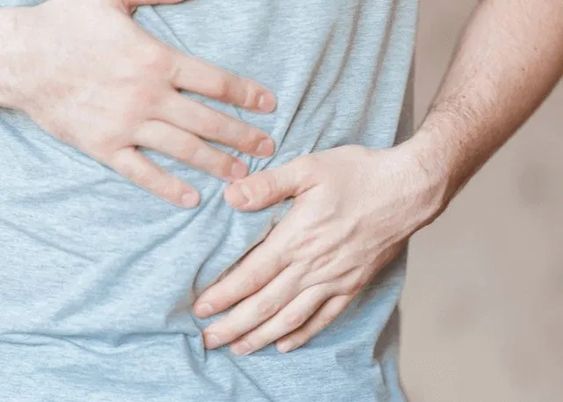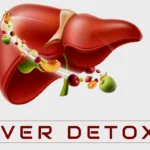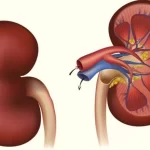What is Gallbladder
Gallbladder surgery: The gallbladder is a part of the gastrointestinal system that’s located slightly below the liver. it’s green in color and is found within the upper right part of the abdomen (CSD), also referred to as the proper hypochondrium (RHC). Its main function is to store the bile and release it into the tiny intestine via the common bile duct when necessary. Bile is a dark green fluid produced by the liver and stored within the gall bladder. It plays a crucial role in the digestion of lipids and fats within the intestine.
Many conditions require the removal of the gallbladder. Expulsion of the gallbladder affects the digestion of food within the intestine. Anyone who has had surgery recently should keep an in-depth watch on their diet. Complications can occur as a result of any sort of surgery. These complications vary from person to person.
What is gallbladder removal surgery?
Alternative names for an equivalent surgery are open cholecystectomy, lap choly, or just cholecystectomy. Gallbladder removal may be a surgery that removes an inflamed or blocked gallbladder, especially if gallstones are causing pancreatitis, or if cancer is suspected. Gallbladder removal or cholecystectomy is performed under general anesthesia. this suggests that the patient is unconscious and painless. The removal of the gallbladder is usually done through four small incisions, the doctor employing a small video camera, called a laparoscope.
In laparoscopic surgery, the stomach is inflated with CO2 to supply the surgeon with more room to figure. The vessels and ducts that cause the gallbladder are identified and thus to the cut, therefore the gallbladder is removed and therefore the incisions are closed.
In complicated cases, an open cholecystectomy could also be performed. an outsized incision is formed slightly below the ribs on the proper side of the abdomen. Next, the vessels and ducts that enter the gallbladder are identified, cut, and cut. Later, the gallbladder is going to be removed and therefore the incisions are going to be closed. Importantly, laparoscopic surgery often has lower rates of complications, a shorter hospital stay, and better aesthetic results than an open procedure.
When is that the cholecystectomy procedure necessary?
Cholecystectomy is typically performed to treat various gallbladder diseases, gallbladder infections, infections, or inflammation called cholecystitis, gallbladder cancer, and biliary dyskinesia (abnormal gallbladder function).
Risk factors of gallbladder surgery
The risk of any anesthetic procedure includes medications or respiratory problems also as self-removal surgery. The risks of this surgery include bleeding, infection, or injury, especially within the common bile duct. However, most patients tolerate the procedure well, recover quickly, and return to normal health without a gallbladder.
Prevalence and recovery
- To remove the open gallbladder, most patients typically require 2 weeks of recovery.
- For laparoscopic gallbladder surgery, a patient is a smaller amount likely to stay in the hospital, and can be home within 24 hours; The recovery time is probably going to be shorter.
- The results of cholecystectomy are usually good, and therefore the symptoms are completely relieved in about 90% of patients who undergo gallbladder removal.
Options for gallbladder surgery
An alternative to surgery is the removal of gallstones by chemical dissolution, the so-called flush of the gallbladder. This folk remedy, traditional European, recommends the utilization of vegetable oil and juice to eliminate gallstones. a crucial concern is that if the stones are overlarge, they can’t easily get out or maybe grind to a halt on the road, something that’s not good. If your problem is gallstones, then you ought to know that traditional Chinese medicine recommends the utilization of the herb’s gold coin. This plant crushes and softens the stones so that they will grow slowly. the matter is that it takes a comparative while, but the advantage is that it doesn’t cause any side effects.
Yellow stools after gallbladder surgery
One of the foremost common post-side effects of gallbladder surgery is diarrhea. As mentioned earlier, the function of the gallbladder is to store bile, which contains digestive salts produced by the liver. During a meal, the gallbladder releases bile salts stored within the intestine to assist digestion, and after the food is digested and absorbed into the intestine, bile salts also are reabsorbed and recycled.
After cholecystectomy, the liver has got to make more bile salts, and more are released between meals. this is often necessary because there’s no place to store these substances. the matter is that bile can absorb excess amounts of salts and sometimes intestinal capacity. during this case, non-absorbed bile salts can secrete fluid to the colon, causing diarrhea. This scenario is benign and doesn’t need to worsen, but every patient should remember it. Interestingly, some patients who have constipation before surgery are happy for this side effect, while some medications, like Questran, which binds excess bile salts, can cause patients affected by severe diarrhea. It is often given.
After Surgery
- However, if there’s yellow diarrhea immediately after gallbladder surgery, other factors should even be considered. These include new medications that the patient may have or an infection that has been acquired within the hospital. If this happens, the patient should discuss these symptoms with the doctor, who will perform the acceptable diagnostic tests.
- There also are other common gastric symptoms after cholecystectomy, often classified under the term “post-cholecystectomy syndrome”. the foremost common symptoms reported by gall bladder patients include pain within the right side of the abdomen, flatulence, bloating, and nausea. The explanation for these symptoms isn’t clear.
- The patent generally doesn’t have anything to do with the surgery. They were often present before the operation and perhaps the rationale why diagnostic tests and diagnoses were made in the first place.
- They can be confused with gallbladder symptoms, which results in the operation, but since gallstones are so common, the look for them doesn’t mean that they’re the explanation for the patient’s symptoms.
- Therefore, problems can’t be eliminated after the removal of the gallbladder. In some cases, these are new symptoms and should indicate disease in another organ that ought to be examined by your doctor.
Weight loss after surgery is normal.
Weight loss: Losing weight immediately after surgery done under general anesthesia is normal. this is often because the patient has NPO (nothing is taken by mouth) for a minimum of 24 hours before surgery and around 12–12 hours after surgery. Intravenous fluids are stored to guard the patient against dehydration and electrolyte imbalance, but these fluids cannot replace the nutritional needs of the body.
In this state, special chemicals are released from the brain that uses the fat stored within the body as a source of energy to finish the body’s metabolism. This causes weight loss suddenly. Young patients can get over this condition quickly and gain weight again, but it is often difficult for patients older than 55 to get over this condition early. Furthermore, there’s no specific reason that an individual loses weight after removing the gallbladder.
Weight gain is more common after gallbladder surgery.
This is because bile is secreted directly from the liver into the tiny intestine after the removal of the gallbladder. aside from the gallbladder, no organ can store bile and release it when necessary. When food enters the tiny intestine, there might not be enough bile for it to function. this will end in an improper breakdown of fat and lipids. These fats and lipids can accumulate inside the abdomen, hips, or the other – leading to weight gain.
People who consume a diet after removing the gallbladder rarely develop any of those complications. However, it’s difficult for a few people to reduce, even exercise after this surgery. If weight loss is maintained, albeit, on a correct diet, you’ll get to visit your doctor and undergo a physical examination.
Common effects of gallbladder surgery
Gallbladder removal is often a setback to the system, but generally, your long-term restrictions aren’t dieting after surgery. However, some patients complain of increased gas or bloating after a meal for several weeks after gallbladder surgery. In most cases, these changes are temporary and improve within a couple of weeks of the operation. If you’ve got an operation that involves removing other organs like the pancreas, you’ll have trouble digesting your food and should not desire to eat too much; Eating small meals can often be easier than eating three large meals each day.
Effects After surgery
- It is important to require care of your intestines after gallbladder surgery. the very fact is that 20% of individuals whose gallbladder is removed experience postoperative diarrhea because the intestine absorbs large amounts of drugs that ought to not be in those amounts. this is often why excess bile passes into the massive intestine or colon.
- Bile retains water within the intestine, causing loose, watery stools, so after removing the gallbladder, the patient’s stool remains within the intestine for a brief time. this is often why the patient has more frequent bowel movements after gallbladder surgery.
- Diarrhea will improve over time, but, unfortunately, it can last for several years, which may make lifestyle harder. Being constantly worried about having a bowel accident is often an excellent stressor when an individual is out, but some things can help. People with this problem may eat a diet high in fiber to soak up excess water and make bowel movements more rapid.
- It is recommended to consult your doctor, who can prescribe diarrhea medicines to slow excessive movement. Some experts recommend avoiding foods that will make diarrhea worse, like tea and occasional, dairy products, spicy foods, and fatty foods.
- You can also try employing a small pad on your pants, as this will help prevent embarrassing moments publicly and assist you to feel safer.






